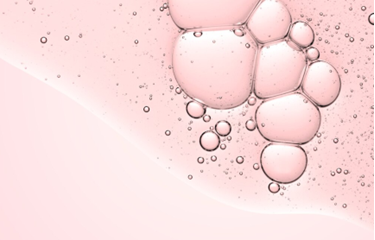Why Salicylic Acid and Niacinamide Are Winter Skin Saviours
When it comes to skincare, winter is a taxing season. It can be harsh on your skin, making it dry, flaky, and prone to breakouts. Therefore, choosing the right hydrating skincare ingredients is even more crucial in this weather.
In this situation, salicylic acid and niacinamide are two powerhouse ingredients that can work wonders during the colder months. This article explores the remarkable salicylic acid and niacinamide benefits and some winter skincare tips to enhance your skin’s health with these two ingredients.

Which Products are Best for Winter Skincare?
In winter, the best products are the ones that hydrate, exfoliate, and soothe your skin while also being gentle. Salicylic acid and niacinamide, when used together, fulfill these requirements and help keep your skin supple and healthy.
- Salicylic acid is a beta-hydroxy acid (BHA). It gently exfoliates your skin and helps clear the clogged skin pores.
- Niacinamide, which is a form of Vitamin B3, works to soothe, hydrate, and strengthen your skin’s barrier.
The use of salicylic acid and niacinamide benefits you by exfoliating, hydrating, and soothing your skin while also making it more resilient against environmental triggers.
How is Salicylic Acid Beneficial to Your Winter Skin?
Salicylic acid is a powerful exfoliating agent. It enters deep into your skin pores and efficiently removes dead skin cells, excess oil, and dirt. This helps in preventing acne and blackheads, which are usually more common in winter due to increased oil production.
Salicylic acid also has anti-inflammatory effects which can help soothe the redness and irritation in your skin. This imparts your skin with a clearer and smoother complexion.

Who Should Not Use Salicylic Acid?
While highly effective and beneficial, salicylic acid is a strong ingredient. Hence, you must use it cautiously if your skin is extremely sensitive, dry, or prone to eczema. Overuse of this ingredient or using it the wrong way can cause irritation and dryness, especially in winter when your skin is already compromised. If you have sensitive skin, consider using salicylic acid less frequently and in small amounts. You can also opt for a milder exfoliant.
Also, regardless of your skin type, perform a patch test before using salicylic acid. If you experience any adverse reactions, such as redness, itching, or excessive dryness, discontinue the use and consult a dermatologist.
How Niacinamide Benefits Your Winter Skin
Niacinamide is a highly versatile ingredient. Known for its hydrating and anti-inflammatory properties, it helps improve skin elasticity, enhance the skin barrier, and reduce the appearance of fine lines.
During winter, it can boost your skin’s natural moisture content, thus alleviating dryness and flakiness. Niacinamide has some anti-inflammatory properties which minimise your skin’s redness and soothe any irritation caused by the cold weather. This ingredient also regulates sebum production in your skin’s layers and thus prevents breakouts.
Who Should Not Use Niacinamide?
Niacinamide is a relatively gentle and hydrating skincare ingredient and, thus, suits all skin types. However, you should avoid it if you have experienced any allergies or sensitivity to niacinamide or other related ingredients. In such cases, you may experience mild irritation, redness, or a burning sensation. When using niacinamide for the first time, or if you have sensitive skin, begin with small amounts of this ingredient to allow your skin to get used to it.

Combining Salicylic Acid and Niacinamide for Winter Skin Health
The combined salicylic acid and niacinamide benefits are well-known among experts and skincare enthusiasts. Incorporating this duo into your winter skincare routine can offer remarkable advantages.
Salicylic acid exfoliates your skin, unclogs the pores, and reduces acne, while niacinamide helps in soothing and hydrating your skin, thus minimising redness and irritation. Together, these ingredients form a balanced regimen that can help you tackle multiple winter skin concerns.
This combination helps you maintain clear, even-toned, and moisturized skin during harsh winter weather. You can start by using salicylic acid-based products, like a cleanser first, followed by a niacinamide serum or moisturizer. Always complete with a broad-spectrum sunscreen during the day to defend your skin from UV damage.
For best results, use a gentle exfoliating cleanser like Cetaphil Bright Healthy Radiance Gentle Renewing Cleanser. It contains active ingredients that effectively exfoliate your skin without stripping away its natural moisture. You can also use the Cetaphil AI Skin Analysis Tool for personalized product recommendations based on your skin type.
Conclusion
Salicylic acid and niacinamide benefits can be miraculous in winter. Straight up from the winter skincare tips from experts, this duo offers exfoliation, hydration, and soothing effects, thus significantly enhancing your skin’s health. These powerful ingredients work together to tackle your winter-specific skin concerns, giving you clear and radiant skin.
FAQs
1. What are the benefits of Salicylic Acid and Niacinamide for winter skincare?
Salicylic acid exfoliates your skin by removing dead skin cells, unclogging the pores, and reducing acne. This makes this ingredient perfect for winter when oil and dirts tend to build up in your skin’s layers. Niacinamide is a hydrating skincare ingredient that soothes redness and strengthens the skin barrier, helping your skin to retain moisture. Together, these ingredients keep your skin clear, balanced, and protected during cold months.
2. How do Salicylic Acid and Niacinamide help with dry winter skin?
Salicylic acid gently exfoliates the dry and flaky skin, preventing clogged pores and breakouts. Niacinamide, on the other hand, boosts your skin’s hydration and improves the skin barrier function. Using them together can help you keep your skin smooth, hydrated, and free from dryness or irritation.
3. Can I use Salicylic Acid and Niacinamide together in my winter skincare routine?
Yes, salicylic acid and niacinamide are highly compatible ingredients and can be used together safely. Salicylic acid exfoliates your skin, allowing better penetration of niacinamide, which hydrates and soothes it. This combination helps in addressing acne, redness, and dryness. It is suggested to apply salicylic acid first, followed by a niacinamide serum or moisturiser to get the best results.
4. Is Salicylic Acid suitable for sensitive skin in the winter?
Salicylic acid can cause skin drying, which may not be ideal for sensitive skin, especially in winter. If you have sensitive skin, use this ingredient less frequently or in small amounts. You can also consider combining salicylic acid with a hydrating ingredient like niacinamide to reduce potential irritation and maintain moisture levels in your skin.













